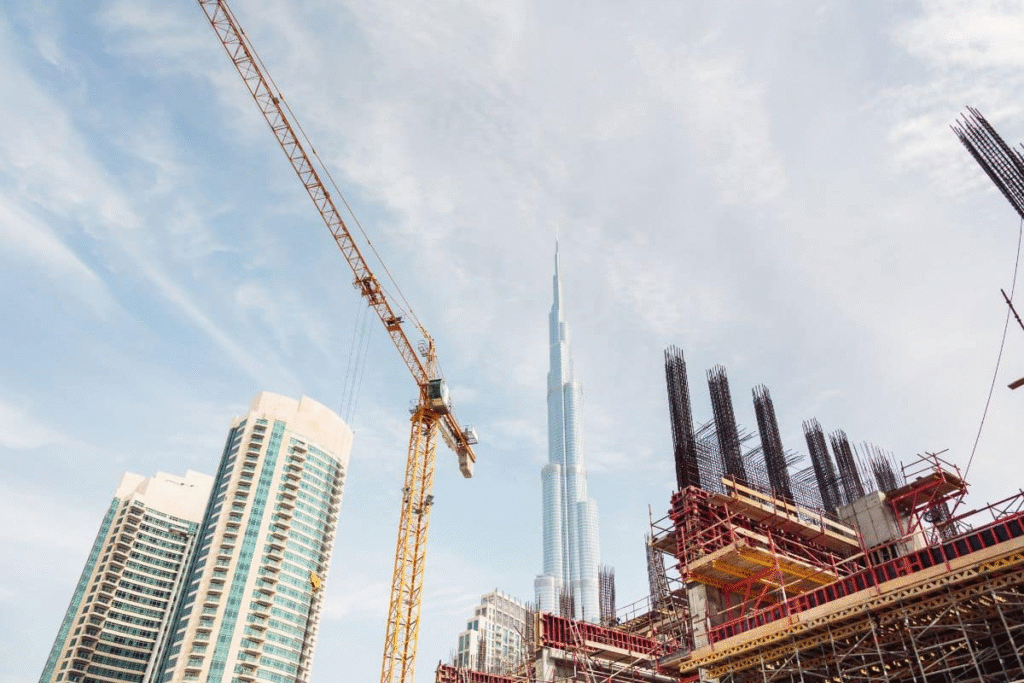Now Reading: Dubai Real Estate: Navigating Project Delays in 2025
-
01
Dubai Real Estate: Navigating Project Delays in 2025
Dubai Real Estate: Navigating Project Delays in 2025

Table of Contents
Dubai’s real estate market continues to demonstrate remarkable resilience and growth into 2025, attracting global investors and residents with its vibrant economy, world-class infrastructure, and attractive lifestyle. However, like any rapidly expanding market, it is not immune to the complexities of large-scale development, and project delays remain a pertinent consideration for both developers and buyers. While significant strides have been made in mitigating these delays, understanding their causes, impacts, and the current landscape is crucial for informed decision-making in the emirate’s dynamic property sector.

The Nuance of Delays in a Booming Market
It’s important to preface any discussion of project delays by acknowledging the extraordinary pace of development in Dubai. The city’s ambition and commitment to growth mean a constant pipeline of new, often groundbreaking, projects. In such an environment, minor adjustments to timelines are almost inevitable. According to recent analyses, Dubai developers have shown improvement in reducing delays, with the median delay decreasing significantly. This indicates a learning curve and adapting strategies within the industry. However, despite these improvements, delays, particularly for larger projects, can still occur.
Key Factors Contributing to Project Delays
Several factors can contribute to real estate project delays in Dubai, some of which are common to construction globally, while others are specific to the unique market dynamics:
- Supply Chain Disruptions: Global supply chain issues, exacerbated by geopolitical events and economic shifts, continue to impact the availability and cost of construction materials like steel, cement, aluminum, and glass. Delays in sourcing these inputs can push back construction timelines. Developers are adapting by seeking diversified sourcing or leveraging local manufacturing capabilities, but the impact can still be felt.
- Financial Challenges: While Dubai’s real estate market is robust, individual developers can sometimes face financial difficulties, particularly if pre-construction sales don’t meet projections, impacting cash flow for subsequent construction stages. This can lead to slower progress or temporary halts.
- Regulatory Approvals and Permits: Navigating the process of obtaining government permits and approvals, such as building permits, electricity, and water connections, can sometimes take longer than anticipated. These administrative hurdles, though necessary, can introduce delays.
- Labor Shortages: Despite a large workforce, specific skilled labor shortages or unexpected fluctuations in labor availability can impact construction timelines.
- Design and Engineering Changes: Mid-project design revisions or unforeseen engineering challenges can necessitate re-planning and re-approvals, adding to the project duration.
- Force Majeure Events: While rare, unforeseen circumstances such as natural disasters, global pandemics (like COVID-19 in recent memory), or significant policy changes can trigger force majeure clauses, allowing for legitimate project delays. Developers must prove that such events directly caused the delay.
- Aggressive Timelines and Over-Promising: In a competitive market, some developers might set overly ambitious completion dates to attract buyers. When these unrealistic targets are not met, it leads to perceived and actual delays.
Impact of Delays on the Dubai Property Market

Project delays, while often manageable, can have various implications for the market:
- Buyer Sentiment: Prolonged delays, especially in the off-plan segment, can weaken buyer sentiment and lead to higher refund requests or disputes. Buyers, particularly those who have planned their residency or investments around a specific handover date, can face significant inconvenience.
- Rental Market Dynamics: If new supply is consistently delayed, it can exacerbate existing housing supply imbalances, particularly in high-demand segments like villas. This can put upward pressure on rental prices in ready properties, as seen in Dubai’s current rental market.
- Developer Reputation: Consistent delays can negatively impact a developer’s reputation, leading to decreased buyer confidence in future projects. Trusted developers often have a strong track record of adherence to timelines or transparent communication regarding any necessary adjustments.
- Revenue Recognition: For developers, delays can impact revenue recognition, as payment milestones tied to construction progress might be pushed back, affecting their financial reporting.
- Investment Yields: Investors in off-plan properties rely on timely handovers to begin realizing rental income or capital appreciation. Delays can push back these returns, impacting their overall investment calculations.
Mitigating Risks and Protecting Buyer Rights
Dubai’s Real Estate Regulatory Agency (RERA), under the Dubai Land Department (DLD), plays a crucial role in monitoring projects and safeguarding buyer rights. Key measures and considerations include:
- Project Status Tracker: The DLD provides online tools and trackers that allow buyers to monitor the construction progress of their purchased units, promoting transparency.
- Contractual Clauses: Sale and Purchase Agreements (SPAs) should clearly outline delivery dates, grace periods (typically up to one year after the anticipated completion without penalty), and clauses related to compensation or termination rights in case of excessive delays. It’s highly recommended for buyers to consult with a real estate lawyer to thoroughly review contract clauses before signing.
- Escrow Accounts: The requirement for developers to place buyer payments into escrow accounts (Oqood accounts) registered with RERA provides a layer of security, ensuring funds are used for the project’s construction and not diverted.
- Legal Recourse: Dubai’s laws offer legal remedies for buyers facing significant delays, including the right to claim compensation or, in severe cases, terminate the contract and seek a refund. RERA can mediate disputes, and if necessary, legal action can be pursued through the courts.
- Developer Track Record: Buyers are encouraged to research a developer’s past performance, including their track record of timely deliveries and customer satisfaction, before making a purchase decision. Trusted developers often have fewer significant delays.
Current Outlook for 2025 and Beyond

As of mid-2025, the Dubai real estate market continues its upward trajectory. While individual project delays are a reality, the overall market remains robust. Several factors indicate a positive outlook:
- Strong Demand: Dubai’s population continues to grow rapidly, fueled by an influx of expatriates, professionals, and high-net-worth individuals, driving sustained demand for both residential and commercial properties.
- Off-Plan Dominance: Off-plan properties still account for a significant portion of transactions, indicating continued investor confidence in future growth and developer capabilities. Developers are increasingly segmenting projects into smaller phases to better manage construction timelines and mitigate large-scale delays.
- Strategic Government Initiatives: Initiatives like the Golden Visa program, flexible residency rules, and the Dubai 2040 Urban Master Plan continue to attract global investment and enhance the city’s appeal, creating a stable environment for real estate.
- Economic Diversification: Dubai’s diversified economy, with strong sectors in tourism, technology, and finance, provides a resilient foundation for the real estate market, cushioning it against global economic fluctuations.
conclusion
In conclusion, while real estate project delays in Dubai in 2025 are a factor to acknowledge, they should be viewed within the context of a rapidly expanding and highly ambitious market. The regulatory framework, increased transparency, and the adaptation strategies of reputable developers contribute to managing these risks. For investors and homebuyers, diligent research, a thorough understanding of contractual terms, and partnering with trusted developers remain the best strategies for navigating the market and capitalizing on Dubai’s enduring real estate opportunities.
WATCH MORE HERE: https://www.youtube.com/watch?v=qbiQC-aVmZs
READ MORE HERE: Trusted Software Developers in UAE: Top Companies for 2025



















